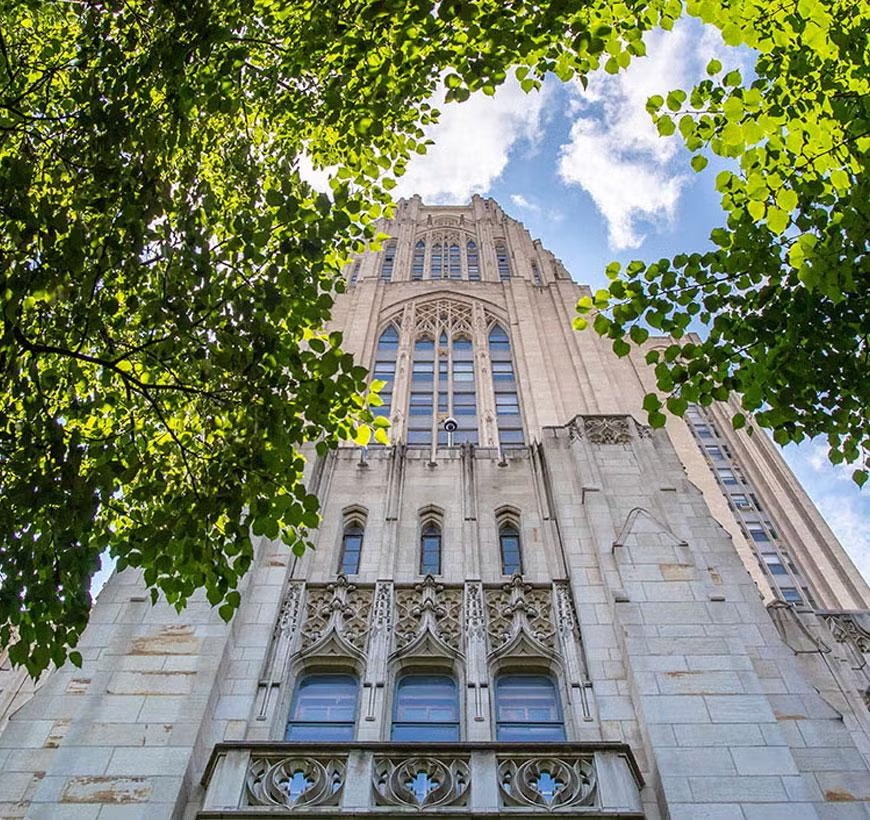
The University of Pittsburgh: Anchor for the Region’s World-Class Life Sciences Hub
The University of Pittsburgh has long been synonymous with medical breakthroughs—think of Jonas Salk’s polio vaccine and the pioneering of organ transplantation. Today that innovative spirit is channeled toward engineering the future of life sciences, with a focus on translating groundbreaking discoveries into viable products that have the greatest possible impact on patients.
With $1.2 billion in R&D spending in 2025, $1 billion of which was directed toward the health sciences, Pitt is a foundational anchor of Pittsburgh’s rapidly emerging biotech sector. In a region once dominated by steel, Pittsburgh’s strength is now in cell and gene therapies, precision medicine, and AI-powered healthcare —and Pitt is at the center of that transformation.
“Pitt is ideally positioned at the crossroads of academic talent, unique collaborations and scientific power to lead the way in biotech,” said Anantha Shekhar, Pitt’s senior vice chancellor for the health sciences and John and Gertrude Petersen Dean, School of Medicine.
“Our mission is to turn cutting-edge science into real-world impact,” says Evan Facher, Vice Chancellor for Innovation and Entrepreneurship at Pitt. “We’re building a world-class ecosystem where those ideas and discoveries can grow into companies, cures and careers.”
That ecosystem is powered by Pitt’s Office of Innovation and Entrepreneurship (OIE), a university-wide engine designed to translate research into regional economic growth. Within it are four aligned units that provide everything from tech transfer to faculty and student entrepreneurial education and mentorship, and industry partnership outreach. Further contributing to all this is LifeX, which was launched by Pitt in 2017 and serves as a commercialization accelerator to help life sciences startups scale from lab to market.
Pitt's innovation ecosystem is launching real companies, creating real jobs and economic opportunities in the region. Recent spinouts include Avista, BlueSphere Bio, LyGenesis, and Peptilogics—each leveraging Pitt-born science to tackle big healthcare problems, from cutting-edge cancer therapies to gene therapies for rare eye diseases to organ regeneration and solutions for difficult-to-treat infections.
Pitt’s ambitions go beyond discovery—they’re also about delivery. In Hazelwood Green, the university is constructing BioForge, a 185,000-square-foot biomanufacturing innovation facility. The anchor tenant, ElevateBio, will bring transformative commercial cell and gene therapy manufacturing to the region. BioForge, LLC will create innovations and breakthroughs in the manufacturing of precision biologic medicines to speed their delivery, use and impact. The project is supported by the largest single grant from the Richard King Mellon Foundation.
“Discovery without delivery is a missed opportunity,” says Ken Gabriel, CEO of BioForge. “BioForge is about removing manufacturing barriers so we can help get life-changing therapies to patients faster.”
Pitt’s reach is also expanding through industry partnerships—$58.1 million in industry-sponsored research expenditures in fiscal year 2025—at the intersection of healthcare, AI, and data science, a growing convergence zone where the university is leveraging its academic firepower to meet real-world challenges.
The result? A flywheel of innovation, investment, and impact that’s helping to turn Pittsburgh into a life sciences powerhouse—and placing the University of Pittsburgh at the heart of one of the nation’s most compelling biotech transformations.

